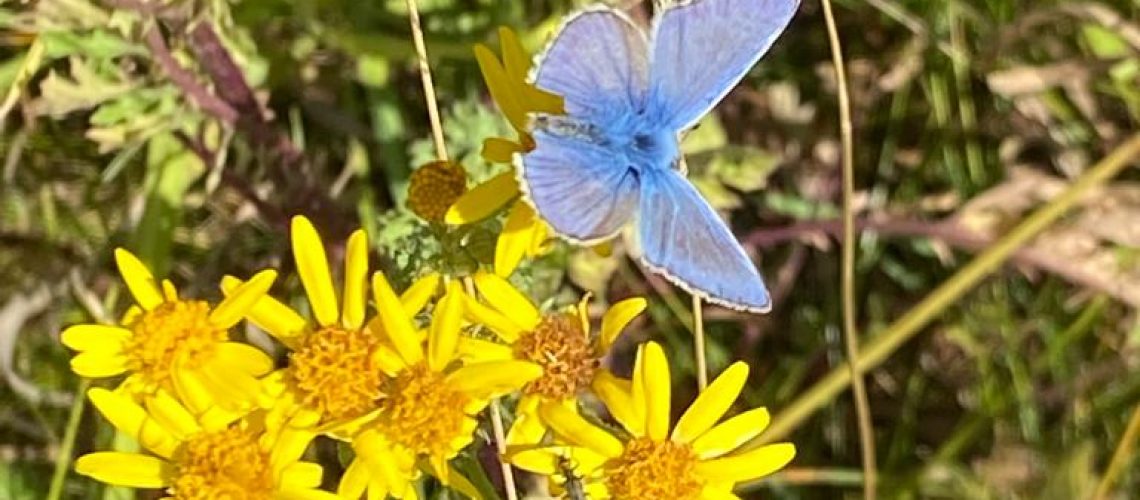About a third of our parish is covered over with houses and gardens. If we are going to increase biodiversity, all those hundreds of gardens need to be put to good use!
There are many small changes you can make. Here are some ideas.
Let them in! Gaps under your garden fence allow wildlife such as hedgehogs, toads and frogs to commute between neighbouring gardens. Encourage your neighbours to do the same to create a wildlife corridor.
Choose the right flowers. Flowers provide pollen and nectar for bees, butterflies and other insects. RHS plants for pollinators has lots of suggestions. The information at RHS Decline in pollinators explains why this is so important.
Grow a mix of trees and shrubs including hedgerows. Trees and shrubs provide food, cover and nesting sites for garden animals, from insects to larger species such as birds. There is lots more information on the ChalCAN Tree and Hedgerow page.
Add water. A pond, however small, is the easiest way to add wildlife value to a garden. A large pot or even an inverted dustbin lid in an out-of-the-way spot will do. There are some great tips in these sites:
Don’t be too tidy. Piles of leaves and twiggy debris provide both food and habitat for many species. Leave a pile of dead wood in a shady spot. Leave perennials uncut over winter. Pile up stones for hibernating reptiles and amphibians.
Allow a patch of grass to grow longer or create a meadow. Wildflower meadows are wonderful for wildlife but even small patches of lawn left to grow longer will provide shelter for small mammals and food for insects. Less mowing means more time to enjoy your garden. There’s great advice on the RHS site pages: Wildflower Meadows .
Compost, compost, compost. Compost makes for healthy soil which is good for everything living and growing in it. There’s helpful advice and tips about how best to create a compost heap on the RHS site. Amongst other benefits compost:
- shelters many small creatures including slug-loving slow-worms.
- saves ‘fuels miles’ if not buying in and transporting waste to recycling site.
- it’s free!
Garden sustainably
- Avoid synthetic pesticides. They are toxic to more than the intended and are extremely energy intensive to produce.
- Avoid peat-based compost which is sourced from bogs which are an important carbon sink: destroying them to make garden compost contributes to climate change. Most major manufacturers produce peat-free products, including Bulrush, J Arthur Bowers, Dalefoot, Scotts, SylvaGrow, Melcourt and Westland. Chalford Building Supplies and Stancombe Farm Shop both stock peat free compost.
- Choose sustainably sourced wood for patio furniture.
- Save water wherever possible.
ChalCAN is trying to build a list of local gardeners willing to share gardening good practice. If you think you’ve cracked how to make good compost, how to increase the numbers of birds, insects or wild flowers in your garden, let us know and we will put you in touch with others who ask for advice. Contact us at info@chalcan.org.uk

